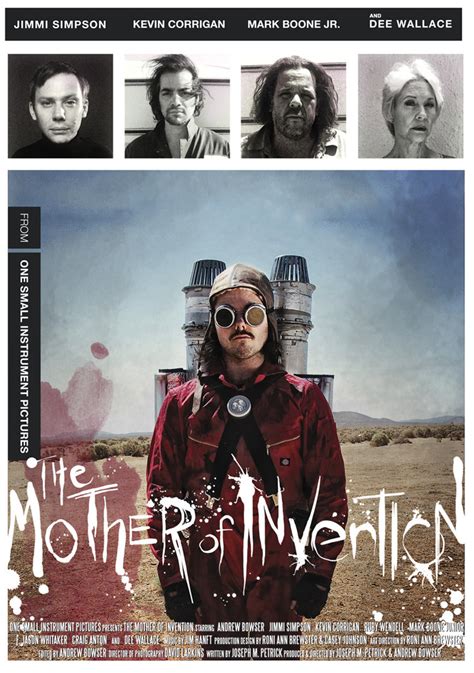The Mother of Invention

Description:
The Mother of Invention is a comedy-drama film that follows a failed inventor who tries to make amends with his estranged family by creating a new invention. As he struggles to perfect his creation, he must confront his past mistakes and learn to prioritize what truly matters in life.Keywords:
Innovation, Ambition, Comedy, Mockumentary, InventionWho originally said necessity is the mother of invention?
The phrase "necessity is the mother of invention" is often attributed to Plato, the ancient Greek philosopher. It suggests that the need for solutions drives creativity and innovation. This idea has been echoed by various cultures and thinkers throughout history, emphasizing that challenges and needs can inspire inventive solutions. The expression captures the essence of how human ingenuity responds to pressing demands, making it a timeless reflection on the relationship between necessity and creativity.
Who is the mother of invention?
"The Mother of Invention" is a film centered around a character named Mary, who is an innovative inventor and mother. The title plays on the saying that necessity is the mother of invention, highlighting how Mary's challenges and circumstances drive her creativity and resourcefulness. Throughout the movie, she navigates personal and professional obstacles, ultimately showcasing the strength and determination of a mother who inspires those around her through her inventive spirit.
Who were the original mothers of invention?
"The Mother of Invention" is a 2023 film that focuses on the challenges faced by women in the tech and entrepreneurial sectors. The title refers to a phrase that highlights the role of necessity as a driver of innovation. While the film does not specifically name "original mothers of invention," it draws inspiration from historical figures like Marie Curie, Ada Lovelace, and other pioneering women who have significantly contributed to science and technology. The film aims to celebrate and inspire the next generation of female innovators.
Why did the Mothers of Invention break up?
The Mothers of Invention, led by Frank Zappa, broke up primarily due to creative differences and personal conflicts among the band members. By the late 1960s and early 1970s, tensions arose over Zappa's authoritarian leadership style and his desire for artistic control, which clashed with the individual musicians' aspirations and visions. Additionally, the pressures of touring and recording took a toll on the group's dynamics. The final straw came in 1975 when Zappa decided to disband the group, leading to various members pursuing solo careers.
Explore More Categories: